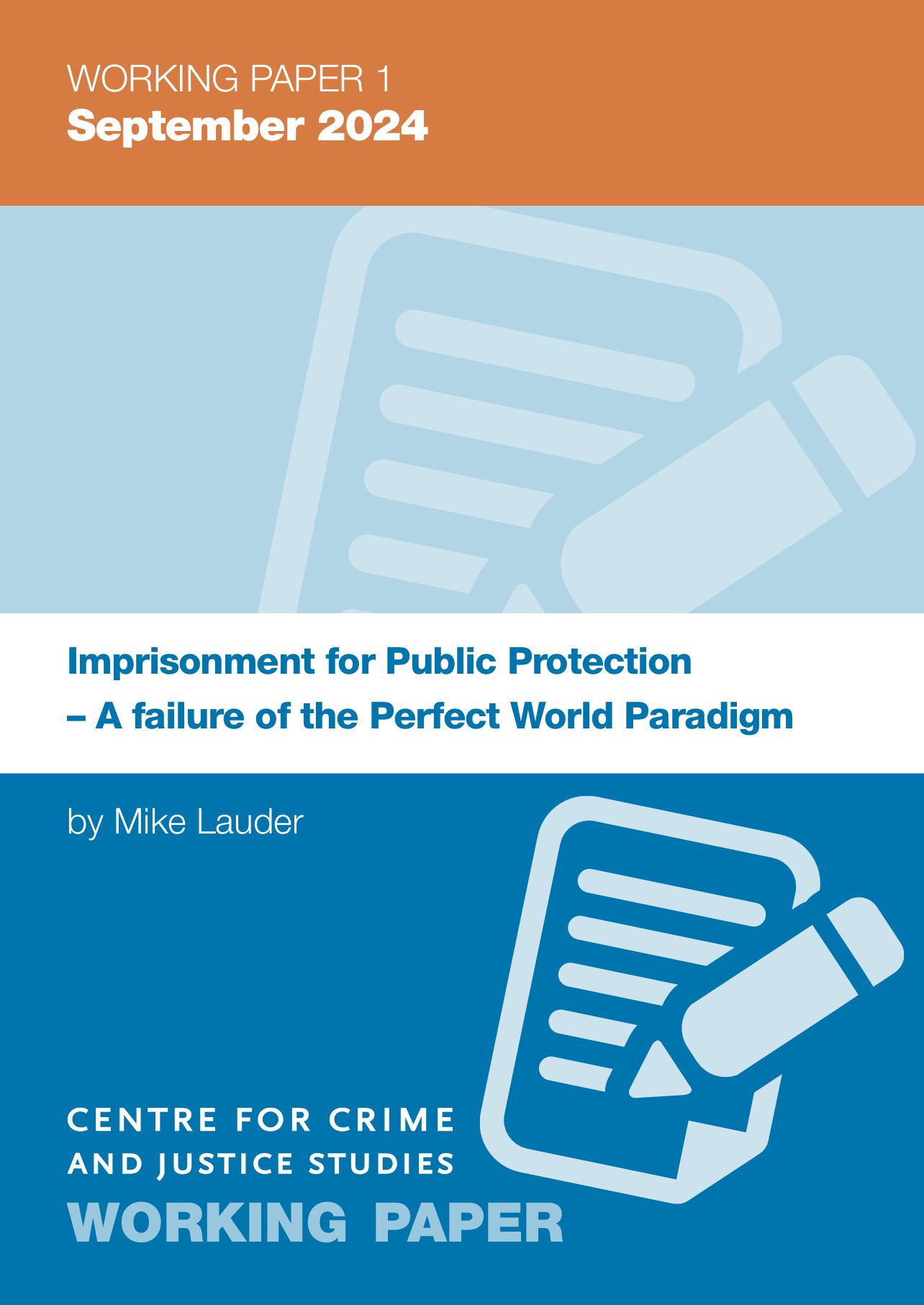In this Working Paper, Dr Mike Lauder discusses the flaws inherent within the ‘Perfect World Paradigm’ when it is used to make public policy.
The basic proposition of the Perfect World Paradigm (PWP) is that it is possible to avoid failure by producing perfect systems. This paradigm suggests that if we recruit the perfect people, produce perfect plans, train people perfectly, supply them with exactly the right resources (including perfect unambiguous information) and execute the plan flawlessly (eliminating all slips and lapses) then the desired outcome will always be delivered.
Mike Lauder uses the Imprisonment for Public Protection (IPP) sentence as a case-study in failings of the PWP. The IPP sentence was abolished in 2012, but the abolition did not apply to those already under the sentence. By June 2024, there were still 2,734 IPP prisoners (1,132 unreleased and 1,602 recalled) and, of those unreleased, 99 per cent had served time beyond their tariff.
Many of the failures that we see with the IPP can be traced back to the use of the PWP as the predominant thinking process. PWP is a linear way of thinking that is used extensively within management systems. It is logical, efficient and, when compared to the alternatives, simple to use. However, PWP is very poor at helping us to think about complex systems. This means that systems based on PWP thinking are highly vulnerable to the effects of unintended consequences.
Lauder writes:
In the case of the IPP sentencing, we have to ask how much imagination was applied to try to foresee what might go wrong. Evidence would suggest not much.
Lauder offers an alternative paradigm: Normal Chaos, which takes a non-linear view of the world. Rather than seeing the interactions within a bounded system, it sees the world as an open system. As a consequence, it expects to see the unfortunate concatenation of events that may emerge as the unforeseen or as unintended consequences.
Lauder suggests that when it comes to the planning and implementation of IPP sentences, it might have been better to use a Normal Chaos rather than PWP way of thinking.
The Centre for Crime and Justice Studies’ working paper series publishes research and analysis of an exploratory nature. Working papers are not formally peer-reviewed, but are intended to stimulate reflection and discussion on current and relevant areas.
